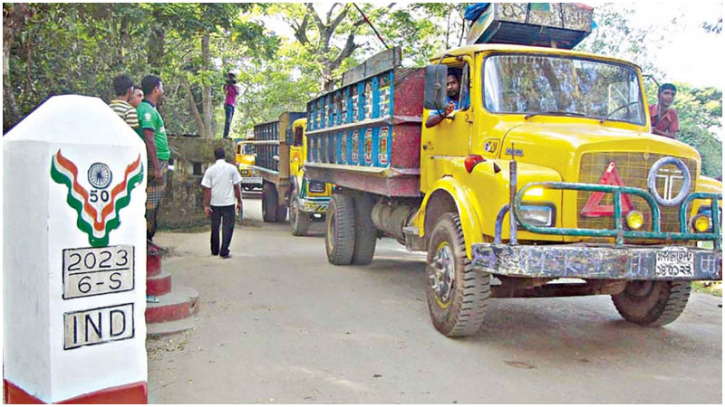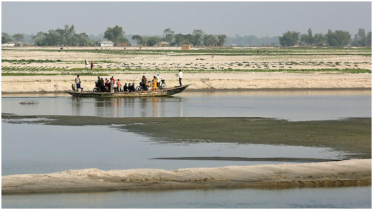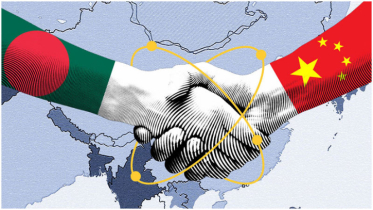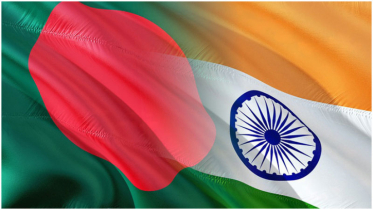India's transshipment cancellation: Steps towards ending Dhaka's economic reliance?

Since the independence of Bangladesh, India has been regarded as a trusted neighbor. Over the years, the bilateral relationship has been shaped not only by political realities but also by evolving multilateral economic engagements. However, economic relations |between the two countries have often come under strain following political transitions in Bangladesh.
Most recently, after the fall of the Sheikh Hasina government on August 5, 2024, bilateral ties have experienced renewed tensions—particularly in the economic sphere. India’s cancellation of the transshipment facility for Bangladesh has added a new layer of complexity to this relationship.
India had allowed transshipment facilities for Bangladesh beginning June 29, 2020. However, on April 8, 2025, the Indian Ministry of External Affairs issued a press release stating that the Central Board of Indirect Taxes and Customs (CBIC) had canceled the transshipment arrangement for Bangladesh. Notably, the facility remains in place for Nepal and Bhutan, allowing them to continue using Indian territory for trade.
Transshipment involves transferring goods from one mode of transport to another en route to their final destination. In June 2020, India permitted Bangladesh to use key facilities such as Kolkata Port, Nava Sheva Port, and the Kolkata Biman cargo complex to export goods to third countries. The sudden withdrawal of this privilege, without prior notification, has raised serious concerns in Bangladesh.
India has cited logistical challenges as the rationale behind the decision, arguing that extended use of its ports and airports by Bangladesh has led to significant congestion, thereby delaying exports and increasing operational costs. However, on June 17, 2025, Randhir Jaiswal, spokesperson for the Indian Ministry of External Affairs, suggested that "certain incidents"—which he deemed unacceptable—were behind the move. This vague reasoning has been widely interpreted in Dhaka as reflecting the growing political rift between the two countries.
Summit yields no results
Efforts to restore political normalcy were made during a sideline meeting at the BIMSTEC summit in Bangkok between Bangladesh’s Chief Adviser Professor Dr. Muhammad Yunus and Indian Prime Minister Narendra Modi. However, the meeting failed to yield any tangible results, further disappointing those hoping for a quick resolution. India’s decision is widely seen in Bangladesh as a blow to bilateral economic ties.
Initially, Bangladesh’s Trade Adviser Sheikh Bashir Uddin downplayed the issue, stating, "Bangladesh won't face any large-scale difficulties due to this decision." However, eight days later, on April 16, 2025, he acknowledged the economic impact, saying, "India's cancellation of the transshipment facility has increased Bangladesh's trade costs by around 2,000 crore taka. The government is taking various initiatives to mitigate this."
In response, the National Board of Revenue (NBR) of Bangladesh imposed a ban on the import of several Indian products. The list includes items such as duplex board, newsprint, craft paper, cigarette paper, fish, yarn, potatoes, powdered milk, tobacco, radio-TV parts, bicycle and motor parts, Formica sheets, ceramicware, sanitaryware, stainless steel ware, marble slabs and tiles, and mixed fabrics. Additionally, the import of yarn through several land ports—including Benapole, Bhomra, Sonamasjid, Banglabandha, and Burimari—has been halted.
Far-reaching implications
A legal notice has also been filed by Supreme Court lawyer Mohammad Azizul Haque, calling on the Bangladeshi government to revoke all facilities extended to India, including transit and corridor rights, in retaliation.
The cancellation has far-reaching implications. Bangladesh is now exploring alternative markets and trade routes. Imports of raw materials from countries like China, Pakistan, Türkiye, and Uzbekistan are likely to increase. Meanwhile, export costs to the Middle East and Western countries have already risen due to longer, more expensive transport routes.
Previously, using Indian land and sea ports—especially via the Petrapole and Benapole borders—enabled faster and more economical exports to third countries. With these routes now closed, Bangladesh will have to rely more heavily on air and sea transport, driving up both cost and delivery times. These disruptions are expected to fuel market volatility and price hikes at home.
Dr. Fahmida Khatun, CEO of the Center for Policy Dialogue (CPD), noted: "The cancellation of India's transshipment facility may cause some disruption to Bangladesh's export flows, especially for products flowing through the Indian gateway." She added that this could also impact trade with neighboring countries like Bhutan, Nepal, and Myanmar, which are heavily dependent on Indian infrastructure.
Some observers interpret Bangladesh's response as a step toward reducing its economic reliance on India and asserting greater independence in trade and diplomacy. At a time when both nations are attempting to stabilize politically and rebuild diplomatic ties, such unilateral decisions could undermine efforts to normalize relations.
(The author is a foreign policy and security analyst-educator who did his post-graduation from the Department of International Relations, Rajshahi University, Bangladesh. Views expressed are personal. He can be contacted at [email protected])
Source: SouthAsiaMonitor
.png)




